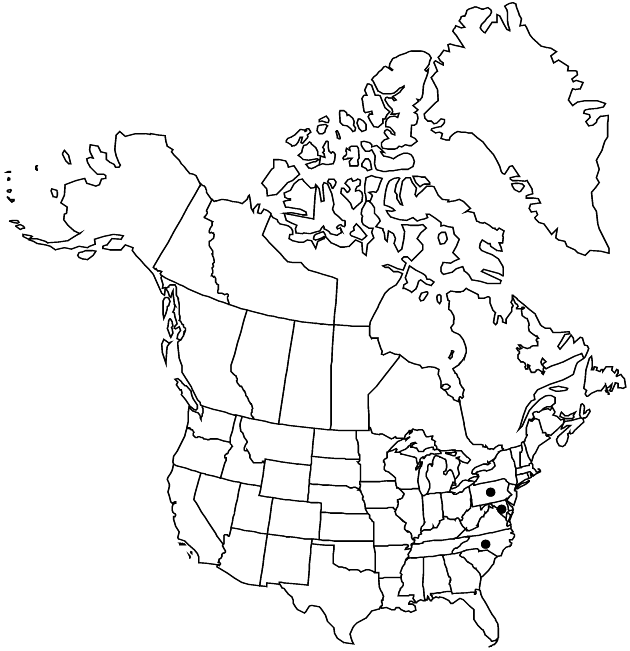Symphyotrichum depauperatum
Phytologia 77: 279. 1995.
Perennials, 20–50 cm, colonial or cespitose; branched rhizomatous. Stems 1–3+, erect (straight, brittle), glabrate. Leaves thin, margins ciliate, abaxial faces glabrous or glabrate, adaxial sparsely strigose; basal withering by flowering (new rosettes developing at flowering), sessile, blades lanceolate to oblanceolate or spatulate, 20–40+ × 3–5+ mm, bases attenuate, margins sparsely serrate to subentire, strigose-ciliate, apices acute to obtuse; proximal cauline usually withering by flowering, sessile, blades linear-oblanceolate, ca. 30 × 2 mm, bases tapering, margins entire, scabrous, apices acute; distal sometimes withering by flowering, sessile, blades linear, 10–30 × 1.5–5 mm, reduced distally, bases cuneate or not tapering, margins entire, apices acute, ± mucronulate. Heads in open, wide, paniculiform arrays, branches arching, sometimes ± secund, abundantly bracteate. Peduncles long, gradually reduced distally on branches, glabrous or glabrate, bracts 3–17+, linear, mucronate. Involucres cylindro-campanulate, (3.2–) 3.4–4 (–4.3) mm. Phyllaries in 3–5 series, oblong-lanceolate, unequal, bases indurate 1/2–3/4, margins narrowly scarious, slightly or not erose, sparsely ciliolate or not distally, green zones lanceolate, apices acute, involute, slightly spreading, faces glabrous. Ray florets 7–14; corollas usually white, seldom pink, laminae (3–)3.8–5.4(–6.2) × 0.5–1.1 mm. Disc florets 7–17; corollas yellow becoming brown, (2.2–)2.5–2.9(–3.1) mm, tubes shorter than narrowly funnelform throats, lobes lanceolate, 0.3–0.6(–0.9) mm. Cypselae yellowish brown, obovoid, ± compressed, ± 1.2–1.3 mm, 3–4-nerved, faces sparsely to moderately strigillose; pappi white (yellowish), 2.4–3.3 mm. 2n = 16.
Phenology: Flowering Aug–Oct.
Habitat: Serpentine or diabasic soils
Elevation: 400–1000 m
Discussion
Of conservation concern.
Symphyotrichum depauperatum is federally listed in the United States.
Selected References
None.
